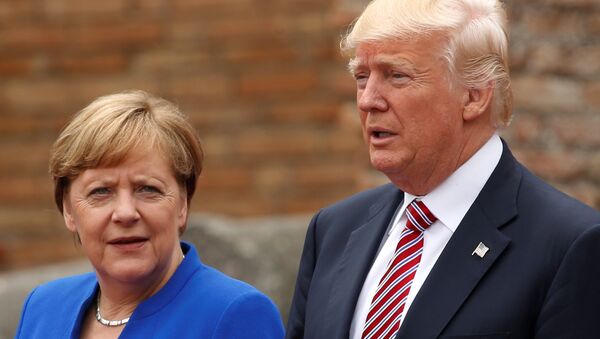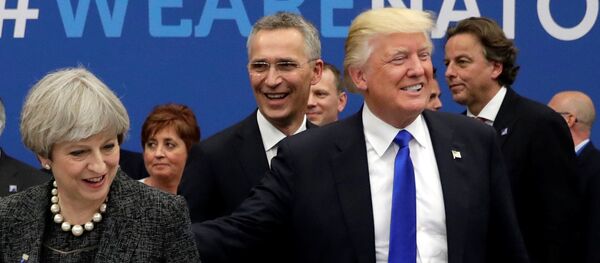In his latest attack on Berlin, Trump tweeted that the US was running a huge trade deficit with Germany, having previously complained that too many German cars were bought on the US. He also castigated Berlin for failing to meet financial obligations within NATO, where it has not met the two percent of GDP target on defense spending.
We have a MASSIVE trade deficit with Germany, plus they pay FAR LESS than they should on NATO & military. Very bad for U.S. This will change
— Donald J. Trump (@realDonaldTrump) 30 May 2017
The negative tone in the tweet was contradicted in the first press briefing since Trump's first European trip by Trump's spokesman, Sean Spicer, who denied there was a rift between Trump and Merkel.
"I think the relationship that the president has had with Merkel he would describe as fairly unbelievable. They get along very well. He has a lot respect for her. They continue to grow the bond that they had during their talks in the G-7," Spicer said, referring to the summit Trump attended May 26/27.
Trump irritated his European partners — particularly France and Germany — by refusing to endorse the Paris climate change agreement, which came into force November 2016. Trump has been critical of the strict emission targets. At the summit, he signaled that he would exit the Paris accord and refused to sign a joint statement with his G7 partners which supported it.
'Catastrophic Mistake'
In January, Trump told a German newspaper that German Chancellor Angela Merkel had made a "catastrophic mistake in her 'open doors' policy towards refugees.
"I think she made one very catastrophic mistake and that was taking all of these illegals, you know, taking all of the people from wherever they come from. And nobody even knows where they come from. So I think she made a catastrophic mistake, very bad mistake," Trump told the German newspaper Bild am Sonntag.
Trump had previously hit out at Europe — not naming Germany as such — telling troops of the US Central Command and US Special Operations Command that other NATO member states should step up to the plate and commit to spending two percent on GDP on defense, as agreed at the 2014 NATO summit in Wales in 2014.
"We strongly support NATO; we only ask that all of the NATO members make their full and proper contributions to the NATO alliance, which many of them have not been doing — many of them have not been even close," Trump said.
Germany is well below the two percent level, according to the latest NATO figures, spending only 1.2 percent, which could be a major issue between the two leaders.



